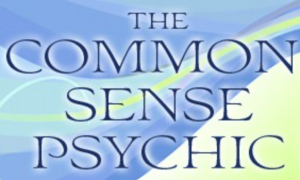 In this podcast, Kevin Hancock speaks with The Common Sense Psychic host Phyllis King about his new book Not For Sale: Finding Center in the Land of Crazy Horse. The book depicts his journey to Pine Ridge to visit the Indian Reservation and the lessons he learned along the way. One of the largest realizations on his journey involved Kevin’s leadership style. As the CEO of Hancock Lumber, Kevin was often the loudest voice in the room, but when he lost his ability to speak, he turned to others to speak more. By listening to others, he found that he could uplift their ideas and share the leadership role.
In this podcast, Kevin Hancock speaks with The Common Sense Psychic host Phyllis King about his new book Not For Sale: Finding Center in the Land of Crazy Horse. The book depicts his journey to Pine Ridge to visit the Indian Reservation and the lessons he learned along the way. One of the largest realizations on his journey involved Kevin’s leadership style. As the CEO of Hancock Lumber, Kevin was often the loudest voice in the room, but when he lost his ability to speak, he turned to others to speak more. By listening to others, he found that he could uplift their ideas and share the leadership role.
Click here to listen to the full podcast.
Here are a few highlights from the podcast (click here for the full transcription):
- And I happened to have read in the summer of 2012, a copy of National Geographic in which the Pine Ridge Indian Reservation was on the cover. And that article, that story, just spoke to me in a really deep, soulful way. Like every character in the story came out and hugged me. And I finished the article and I said to my wife, “I’m going to go there. I want to see what life is like, modern day life is like for the people that live there.” One of the biggest most historic, poorest, combative, disenfranchised of all the Sioux reservations on the Northern Plains. And one trip led to two, which has now been 10. And a journal I was keeping turned into a book and a story I wanted to tell. But it all came from stopping, sitting still, and listening to my own voice and wanting to express myself more broadly than just the roles I’d been assigned or taken on in my life. (08:17-09:18)
- But what I discovered by accident changed the way I thought about leadership and changed my role. And I’ve since come to be a champion of what if we could create an organization where every voice was a leading voice, where every person led. Wouldn’t that be more powerful and dynamic and healthy than an organization where just a few people held all the cards? (20:09-20:37)
- I suddenly had a lot more time, I was able to be more effective by doing less. Which is a really counter intuitive concept for leaders to get their head around. But I freed up time and then I was able to reinvest some of that time in my own well-being. And just over time, spending time just on me. Like I would go to Pine Ridge for five or six days at a time by myself. And while I was engaging with them and learning about them and growing fond of them and thinking about their world, I was really also just there clearing my own head and serving my own soul. And the mere act of making time to do that was extremely powerful. (20:41-21:35)